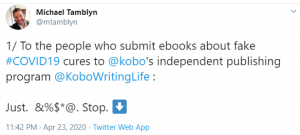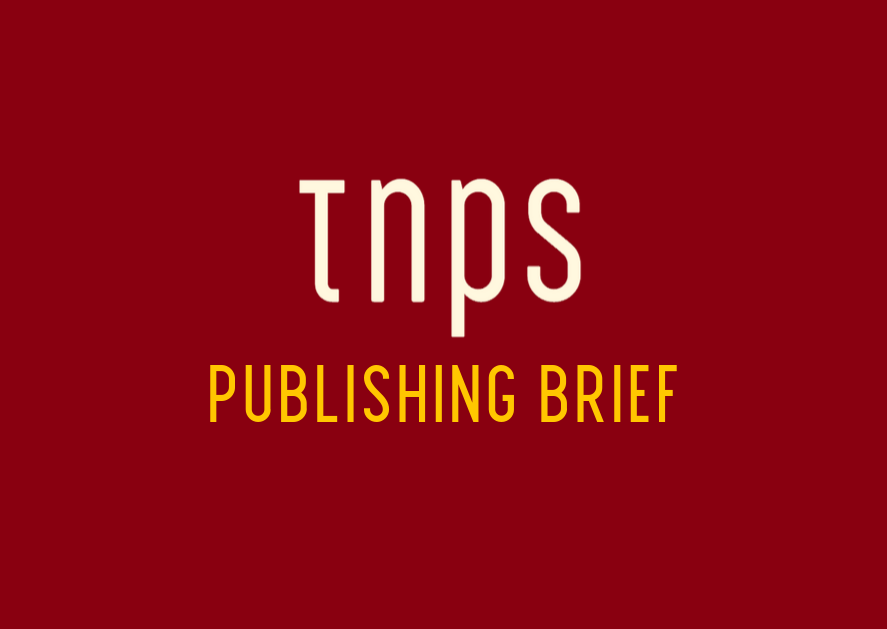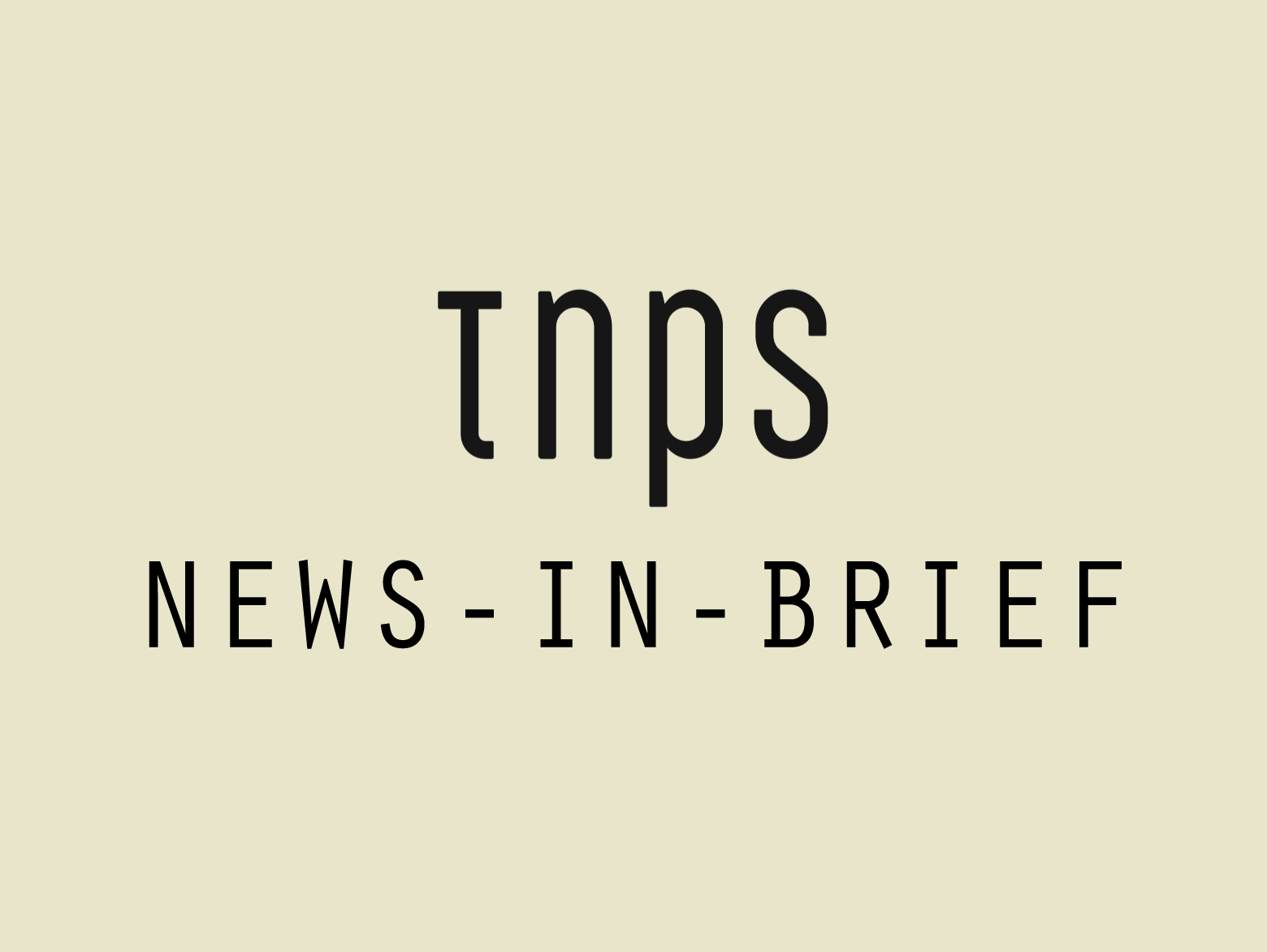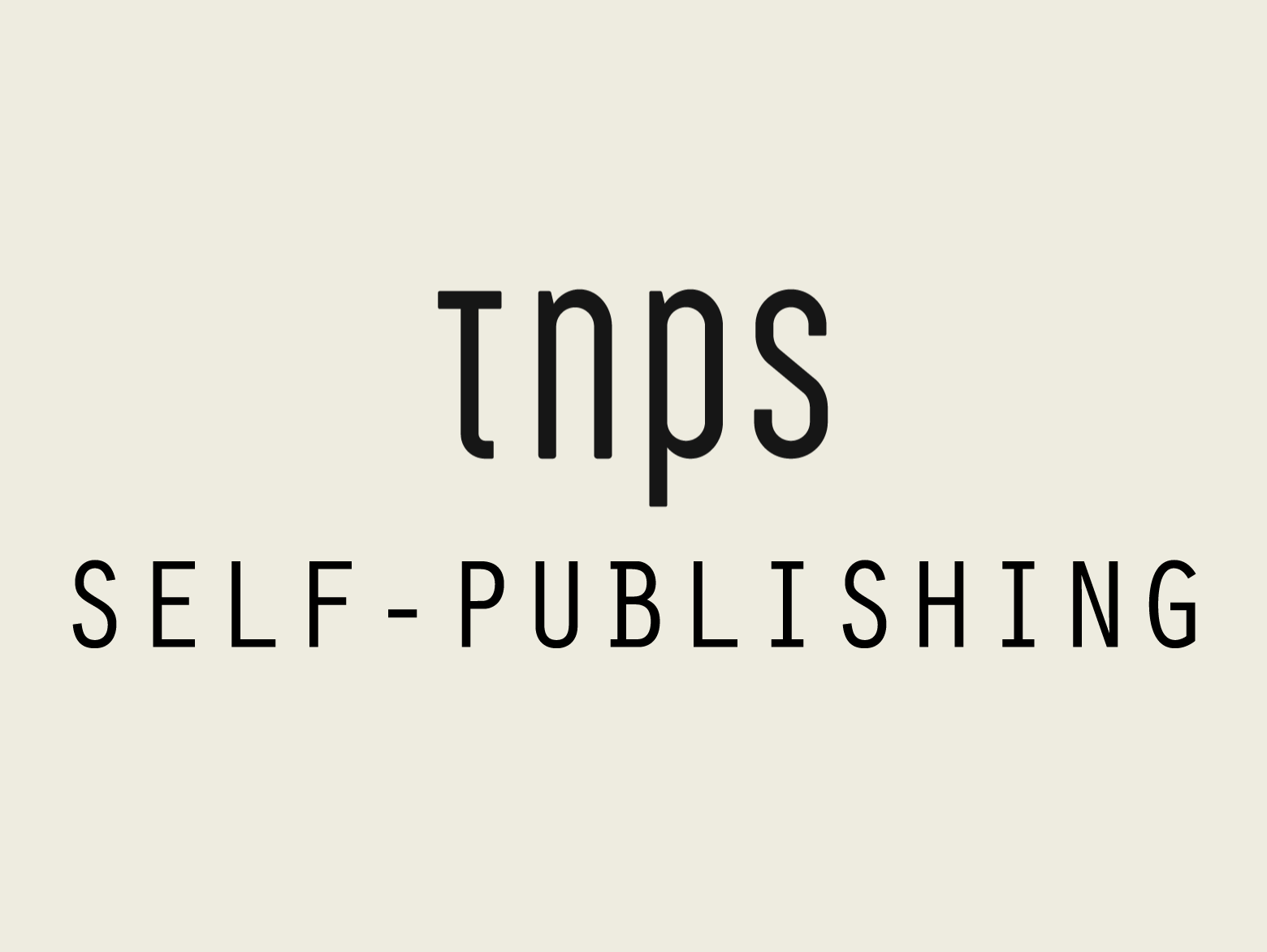When it comes to book scams, digital makes it easy for pretty much anyone anywhere to get in on the act, and publish pretty much anything.
And as we all know, a crisis of any sort is an open door for scammers wanting to make a fast buck off public fears and anxieties.
The coronavirus pandemic is no exception, and the industry news is brimming over with sorrowful tales of shameless authors (I use the term lightly – many are simply copy-paste cowboys lifting disreputable content from the internet) selling potentially dangerous “books” about how to survive Covid-19.
Kobo CEO Michael Tamblyn has had enough, and let loose his frustrations on twitter (@mtamblyn):
To the people who submit ebooks about fake #COVID19 cures to @kobo’s independent publishing program @KoboWritingLife: Just. &%$*@. Stop.

Tamblyn explained:
We are rejecting over 50% of the ebooks submitted dealing with #COVID19 and #Coronavirus. They are filled with near-criminal snake-oil quackery, conspiracy theories, and raw disinformation.

Tamblyn added:
Our screening algorithms flag everything as it comes in. Our staff know what to look for. As we find them, we yank them without hesitation. Doesn’t matter if it comes to us directly or through an #indy aggregator. So just stop.

Lest someone out there still hadn’t got the message, Tamblyn went on:
In case you weren’t sure, trying to sell this stuff during a pandemic puts you in the category of people who knowingly sell fake antibiotics and faulty lifejackets, who peddle bogus cancer cures or shout fire in a packed theatre. You are choosing to be *that* person.

No, hold on, he’s not finished yet:
Please find a better way to spend your time. PS – To the other people who are cut-and-pasting free material from the #WHO website, sticking a cover on it and trying to charge for it: less bad, but so lame. You need a new hobby. Okay, I’m done.

The twitter tirade got surprisingly muted response, but one indie author, who describes herself as a,
maker of readable art (and) author of … the best novel you will read this year,
hit back at Tamblyn:
And yet you make it virtually impossible to advertise amazing indie fiction and compete with the big publishers. Please spare us your faux righteous anger.

In fact there is nothing in Kobo’s t&cs to prevent an author running promotions for their Kobo titles, and Facebook, twitter, Instagram, etc, are awash with author-powered advertising, while Kobo itself runs a Promotions feature (which the irate author by self-admission had been rejected for) within its self-publishing arm Kobo Writing Life. which means indie authors can indeed compete against big publishers right there on the Kobo site, but of course places are limited and conditions apply.

As this post goes live Kobo is offering no fewer than 16 promotions for indie authors, including,
Mother’s Day Sale/Women’s Fiction sale UK/ANZ – April 30-May 10
Mother’s Day and Victoria Day Sale (Canada) – May 7-21
May 40% Off Box Set Sale (US/UK) -May 22-27
Stepping back, Tamblyn’s rant against scammers is welcome, and it would be great to see similar statements from CEOs of other retailers that scammers use.
Although that may just mean Amazon, if The Digital Reader’s Nate Hoffelder is correct.
Earlier this month, discussing this very topic of coronavirus scam books, Hoffelder said:
The problem is unique to Amazon. Most of Amazon’s e-book competitors have a content approval process in place that keeps the worst content out. I checked Kobo and Play Books and could not find any Coronavirus spam books. Amazon, on the other hand, was filled with them.
I don’t know if it’s a case of can’t or won’t. What I do know is that Amazon is the only retailer with this problem. They have the lion’s share of the e-book market revenue, and could easily afford to use the same quality assurance processes as their competitors, and yet they still have this problem.
Tamblyn’s tweet tirade may offer us the reason why. It’s not that the scammers think the Amazon rivals are not worth bothering with, but rather that Kobo is not just flagging this material but actively preventing it going live by manually checking every title caught in the net.





